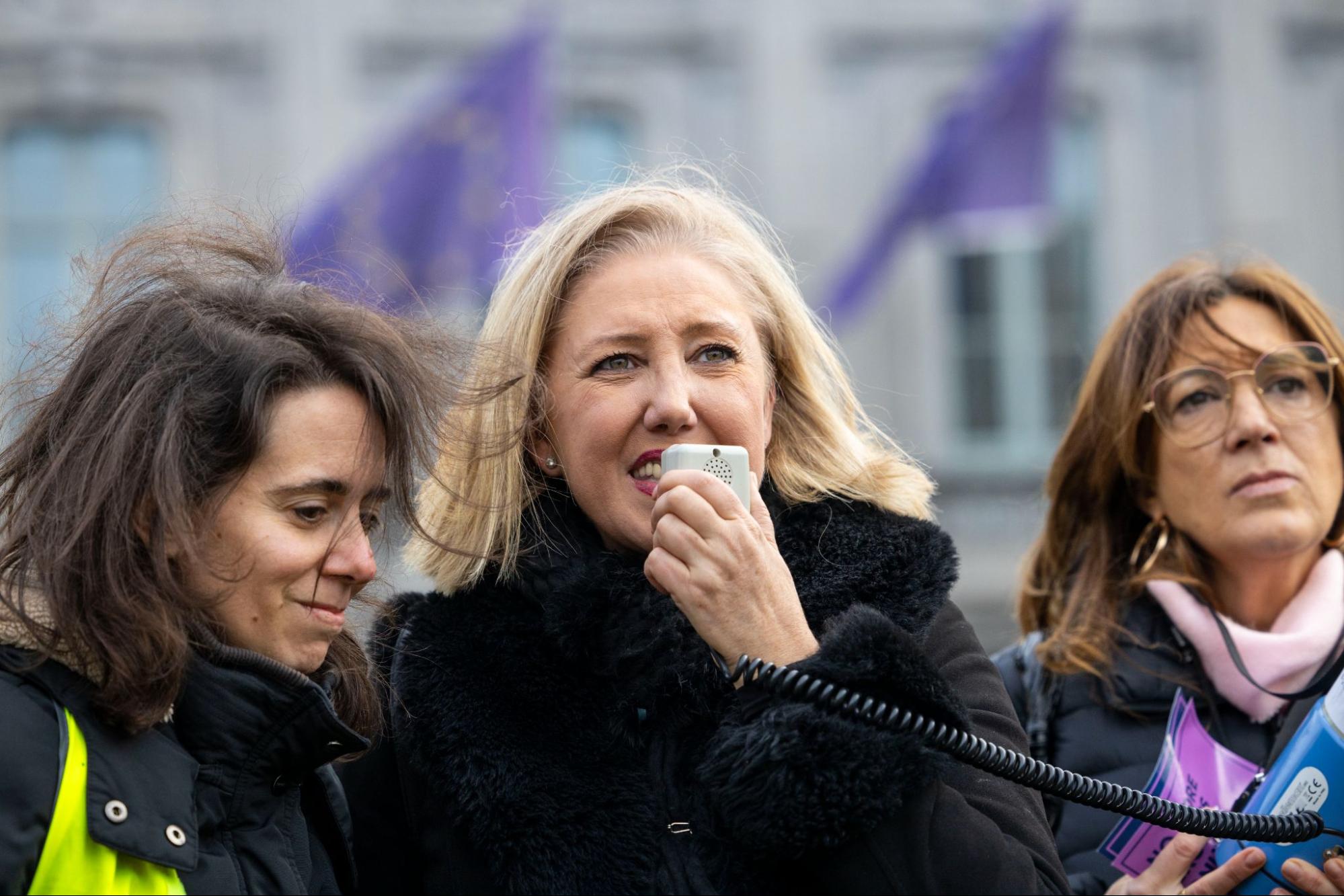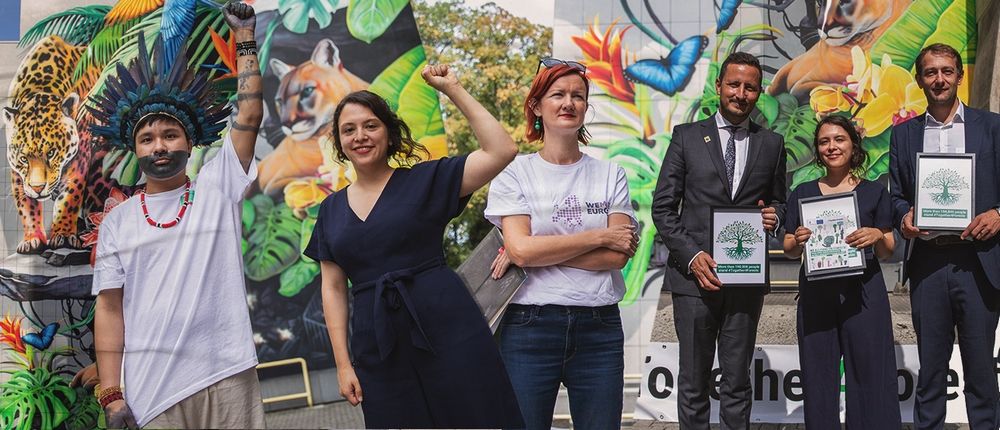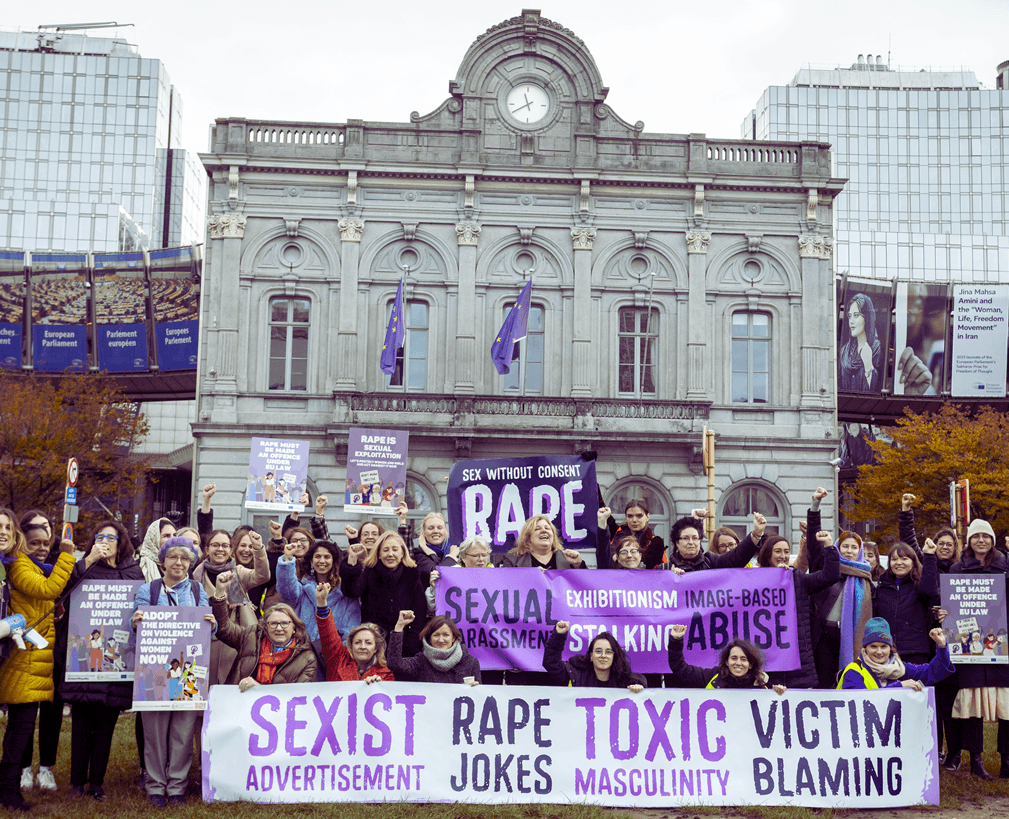An activist's speech
November 20, 2023
By WeMove Europe
Marta Asensio, activist and survivor of rape by chemical submission, gave this speech in the European Parliament during an event organised by We Move Europe and the European Women's Lobby in the context of our campaign against violence against women: wemove.eu/EndVAW.
My name is Marta Asensio and, like more than 9 million women across the EU, I am a rape survivor. For years, my partner used to put me on what he called “the cola-cao of drowsiness" and make me unconscious in order to sexually assault me.
For a while I felt a lot of guilt for not being able to wake up. He did not need to use force to rape me. I had no bruises or any visible marks as my body was completely limp, as if I were dead. The next day I felt horrible, used, dirty and angry with myself. When I told him not to do it again, he told me that I should be happy that he wanted me so badly. As if I should be grateful that he raped me. In reality, it was a brutal way of dominating me. Even if this crime is time-barred, it remains in our bodies forever in the form of sexual aversion, post-traumatic stress disorder or vaginismus among other sequelae.
I finally managed to get out of that situation and I have become an activist, a fighter with a clear purpose: to help other women who are in the same situation. To show that there is a way out. And to demand that the political class take urgent measures to guarantee a life free of sexual violence for all women.
Sexual violence against women is based on male domination and power. I always say that rapists are not born in spores but are part of society. Like other forms of gender violence, they are part of society. Like other forms of gender-based violence, it is a structural violence in which men exercise power over the integrity and lives of women. The representatives of the European Union have a great responsibility to move in the right direction with this directive.
Today I would like to put special emphasis on advocating that "only yes is yes", that as a society we need to understand that any sexual act without consent in conditions of freedom and mutuality is rape. In my case, I could not say no. As a victim of chemical submission and with my will completely overridden, I did not have the opportunity to defend myself against my aggressor. This is a very common occurrence. Other women are paralysed by fear, they are in shock and cannot escape the situation. Even if they know the aggressor. But that does not diminish the seriousness of the rape.
My story shows the importance of putting consent at the centre, that you can't always say no and the question should not be to the victims, did you resist or not? But to the abusers, did you do it even though she was not free to consent?
The focus on consent helps us to move away from the myths around rape, such as that it only happens by a stranger cornering you in a dark street. In my case it happened while I was at home, in my bed, I was wearing what anyone would wear to bed at night, and it was done to me by someone I trusted. This happens to many women in the European Union, every day, all the time, in every country. In some countries, it is not even contemplated that intimate partner rape can happen.
When I identified what happened to me, I felt very lost. I didn't know who to ask for help, I was afraid to go to the police and they wouldn't believe me. I was afraid of going to the hospital and they wouldn't have proper protocols. Of ending up in court and being asked inappropriate questions about my personal life. Or having to tell my story a thousand times to strangers without any training. This is part of the re-victimisation that we survivors face across the EU. That is why I would also like to stress the need for the establishment of specialised 24-hour crisis centres in all EU countries, where women can go at any time and receive expert and comprehensive care and counselling tailored to their needs.
I hope that my story will help so that no woman has to go through what I went through. I want women who are listening to me and have been through something like this to know that they are not alone. That we can get out of this and that it is important that we don't keep quiet, that we support each other and that together we can make a difference.
All women and girls in the world deserve the same rights, regardless of where we were born, where we work, where we live or go on holiday. We have a chance to make this happen at least in the European Union. We need a consensus on this, regardless of the colour of your parties. Unfortunately, no one is free from experiencing something like this, and tomorrow it could happen to anyone around them.
I want to send a clear and strong message to the justice ministers of all EU countries, especially France and Germany and the other countries that are opposing this: we need you to listen to the survivors and stand up for all women. Act accordingly to guarantee our rights. Regulate rape on the principle of freely given consent in conditions of mutuality and fairness, in Article 5 of the directive.
Blocking this historic opportunity to equalise women's protection from rape is a mistake we cannot afford. Especially given that almost half of EU countries do not have consent-based definitions of rape. Most of them do not cover what happened to me and I will not be silent about this. It is time to change it.
I sincerely hope you can live up to it.
Thank you very much
References:
[1] https://fra.europa.eu/en/publication/2014/violence-against-women-eu-wide-survey-main-results-report [2] https://womenlobby.org/EWL-Observatory-Analysis-of-definitions-of-rape-in-the-EU-The-added-value-of?lang=en


